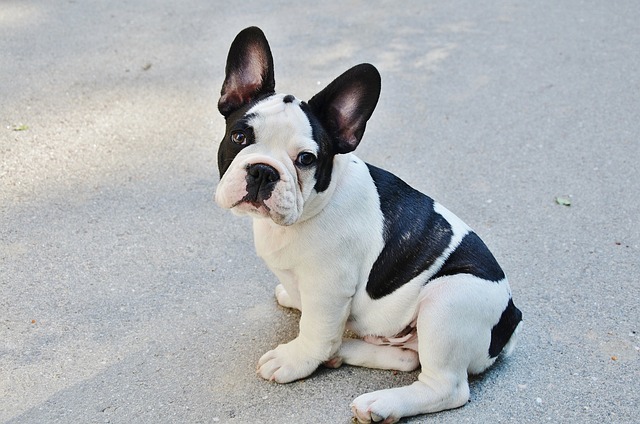


The French Bulldog, also known as the "Frenchie," is a small, compact breed with a muscular body, bat-like ears, and a distinctive pushed-in face. Known for its playful, affectionate, and even-tempered nature, the French Bulldog has become one of the most popular companion dogs worldwide. Their size makes them suitable for apartment living, and their love for companionship means they thrive in households where they can receive plenty of attention from their owners.
The French Bulldog originated in France in the 1800s. It is believed to have descended from smaller bulldog breeds that were brought to France by English lace workers. These workers would often have small bulldogs with them, and the French Bulldog was eventually developed as a companion dog. The breed was refined in Paris, where it became a popular pet among the French bourgeoisie. Over time, the French Bulldog gained popularity for its charming personality and unique appearance. The breed was officially recognized by the American Kennel Club in 1898.
French Bulldogs are small, sturdy dogs with a strong, muscular build. They typically stand between 11 to 12 inches tall and weigh between 16 to 28 pounds. One of the breed's most distinctive features is its "bat ears," which are large and stand upright. Their short, flat muzzle gives them a characteristic "pushed-in" appearance, and they have a wrinkled face that adds to their expressive look. The breed has a short coat, which comes in a variety of colors, including fawn, brindle, and pied (a mix of white and another color). Their tail is typically short, either straight or "screw" shaped.
French Bulldogs are known for their affectionate, playful, and easygoing temperament. They are loyal and form strong bonds with their owners, often seeking attention and cuddling. Frenchies are friendly, especially with children, and they tend to get along well with other pets. Despite their small size, they can be quite confident and may show a feisty side, but they are not aggressive. They are also highly adaptable and can live comfortably in a variety of environments, from busy city apartments to suburban homes. Their playful nature means they love to be the center of attention and often act silly to entertain their families.
French Bulldogs have relatively low to moderate energy levels, making them suitable for individuals who prefer less active dogs. While they enjoy short walks and playtime, they are not as energetic as other breeds and do not require extensive exercise. However, they still benefit from daily walks to keep them physically fit and mentally stimulated. Due to their brachycephalic (flat-faced) nature, Frenchies can be prone to breathing difficulties, especially in hot weather or during intense physical activity. It is important to avoid overexertion and ensure they stay cool and hydrated during exercise.
French Bulldogs are intelligent and eager to please, which makes them relatively easy to train. However, they can also be stubborn at times, so patience and consistency are key. Positive reinforcement methods such as treats, praise, and play are the most effective training tools. Early socialization is important to help them become well-adjusted adults, and exposing them to different environments, people, and other animals can prevent behavioral issues. While they may not be the best candidates for advanced obedience work or competitive dog sports, French Bulldogs can learn basic commands and tricks with the right motivation.
French Bulldogs are generally healthy but are prone to certain health issues due to their unique physical traits. Their brachycephalic structure can cause respiratory problems, such as brachycephalic obstructive airway syndrome (BOAS), making it important to monitor their breathing, especially in hot or humid conditions. They can also be prone to hip dysplasia, intervertebral disc disease (IVDD), and certain eye conditions like cataracts. Regular veterinary check-ups, a balanced diet, and maintaining a healthy weight are essential for keeping French Bulldogs in good health. Their short coat is low-maintenance, but they should be bathed and groomed regularly. Additionally, their ears need to be cleaned to prevent infections due to their large, upright shape.
The average lifespan of a French Bulldog is between 10 to 12 years. With proper care, regular veterinary visits, and a healthy lifestyle, some French Bulldogs can live longer. However, their unique physical traits, such as their flat faces and compact bodies, may lead to certain health challenges as they age, so it is important to monitor their health closely as they grow older.
© copyright Dog Compendium 2024 - 2026